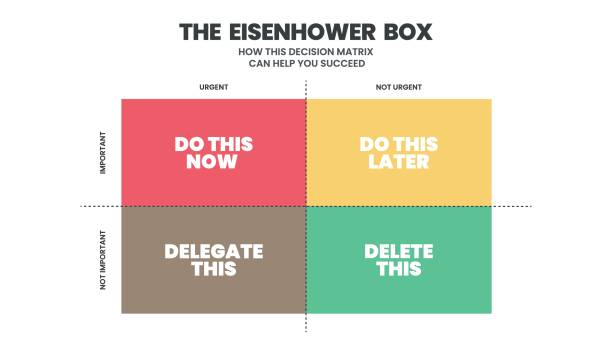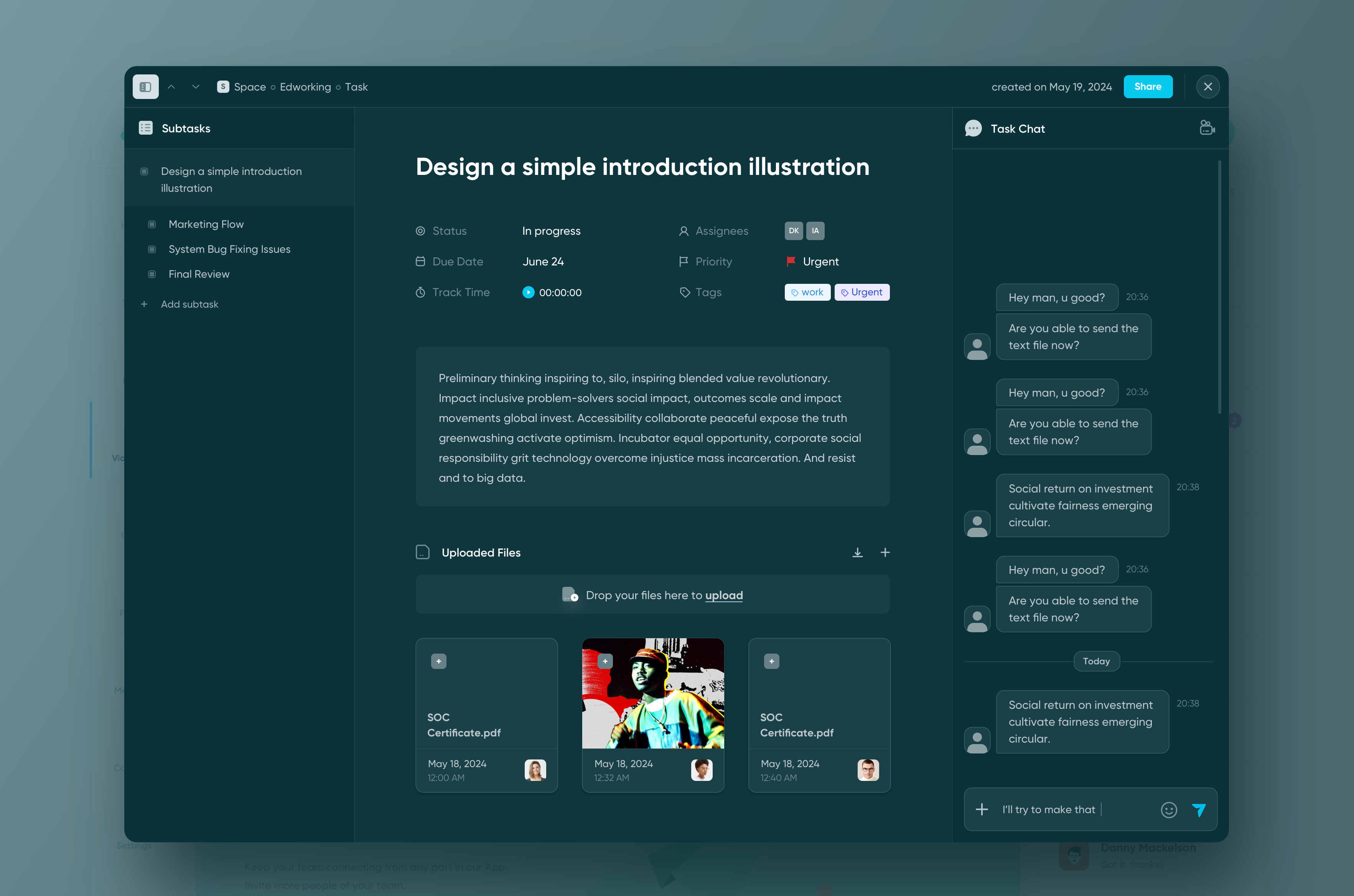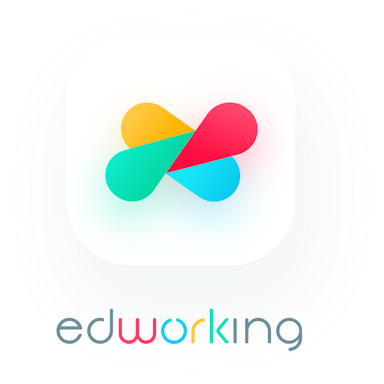In the hustle and bustle of today's work environment, managing tasks efficiently can feel like trying to juggle flaming torches while riding a unicycle. It's no wonder that many of us end up with a pile of overdue tasks that looms over our heads like an ominous storm cloud. This can be both overwhelming and stressful, impacting our productivity and overall job satisfaction.
But fear not! With the right strategies and tools, you can regain control of your workload and tackle those overdue tasks with confidence. In this article, we'll explore practical and effective ways to manage overdue tasks at work, helping you boost productivity and reduce stress. Whether you're a seasoned professional or just starting in your career, these tips will empower you to handle your tasks more efficiently and keep those deadlines in check. Let's dive in!
 Understanding Overdue Tasks
Understanding Overdue Tasks

What Are Overdue Tasks?
Overdue tasks are assignments or responsibilities that haven't been completed by their designated deadlines. These can range from minor daily tasks to significant project milestones. When tasks go overdue, they often disrupt the workflow and create a backlog, making it challenging to stay on track. Overdue tasks signal that there might be underlying issues in time management, prioritization, or task delegation.
Common Causes of Overdue Tasks
- Poor Time Management: Misjudging how long tasks will take or failing to allocate enough time can quickly lead to overdue tasks.
- Procrastination: Delaying tasks until the last minute often results in missed deadlines.
- Unclear Priorities: Without a clear understanding of what needs to be done first, important tasks might be overlooked.
- Lack of Resources: Sometimes, tasks are delayed due to insufficient tools, information, or support.
- Unexpected Interruptions: Unplanned meetings, emergencies, or other disruptions can throw off your schedule.
- Overcommitment: Taking on more tasks than one can handle often leads to some falling through the cracks.
Understanding these causes can help you pinpoint where improvements are needed and prevent tasks from becoming overdue.
The Impact of Overdue Tasks on Productivity
Overdue tasks can have a significant impact on productivity and morale. Here are a few ways they affect the workplace:
- Increased Stress and Anxiety: Knowing you have missed deadlines creates a constant source of stress, which can affect your overall well-being and focus.
- Decreased Efficiency: Overdue tasks can lead to a chaotic work environment where you're constantly playing catch-up, reducing your overall efficiency.
- Lower Quality of Work: Rushing to complete overdue tasks often means sacrificing the quality of your work.
- Damaged Reputation: Consistently missing deadlines can harm your professional reputation, making colleagues and supervisors less likely to rely on you.
- Negative Team Dynamics: If team members frequently miss deadlines, it can create tension and frustration, affecting collaboration and morale.
By understanding the common causes and impacts of overdue tasks, you can take proactive steps to manage them effectively and maintain a productive, stress-free work environment.
 Effective Strategies to Manage Overdue Tasks
Effective Strategies to Manage Overdue Tasks
Prioritization Techniques

The Eisenhower Matrix
One of the most effective ways to manage overdue tasks is by prioritizing them using the Eisenhower Matrix. This technique helps you categorize tasks based on their urgency and importance:
- Urgent and Important: Tasks that need immediate attention.
- Not Urgent but Important: Tasks that are significant but can be scheduled for later.
- Urgent but Not Important: Tasks that should be delegated or done quickly.
- Not Urgent and Not Important: Tasks that can be eliminated or done in spare time.
By sorting your tasks into these categories, you can focus on what's truly critical and ensure that important tasks don't become overdue.
ABC Method
The ABC Method is another prioritization technique that helps you rank tasks by importance:
- A Tasks: Must be done today; highest priority.
- B Tasks: Should be done soon; medium priority.
- C Tasks: Could be done if time allows; lowest priority.
This method helps you systematically tackle tasks, reducing the likelihood of important tasks becoming overdue. It encourages focusing on high-priority tasks first, ensuring that crucial deadlines are met.
Time Management Skills
Pomodoro Technique
The Pomodoro Technique is a time management method that can significantly enhance productivity. It involves working in short, focused bursts (usually 25 minutes), followed by a short break (5 minutes). After four "Pomodoros," take a longer break (15-30 minutes). This technique helps maintain concentration and prevents burnout, making it easier to stay on top of tasks and avoid delays.
Time Blocking
Time Blocking is another powerful time management skill where you allocate specific blocks of time to different tasks or activities. By scheduling your day in advance and sticking to these blocks, you can ensure that each task gets the attention it needs, reducing the risk of tasks becoming overdue. It also helps in setting boundaries and avoiding multitasking, which can often lead to missed deadlines.
Task Delegation

Identifying Tasks to Delegate
Delegation is key to managing a heavy workload. Start by identifying tasks that can be delegated. These are usually tasks that others can do more efficiently, tasks that are not within your core responsibilities, or routine tasks that take up too much of your time. By offloading these tasks, you can focus on more critical responsibilities and ensure nothing falls behind.
Choosing the Right Person
When delegating, it's essential to choose the right person for the task. Consider the individual's skills, experience, and current workload. Effective delegation ensures that tasks are completed efficiently and on time, reducing the risk of overdue tasks. It also empowers team members by giving them opportunities to develop new skills.
Setting Realistic Deadlines
Assessing Task Complexity
To avoid overdue tasks, it's crucial to set realistic deadlines. Start by assessing the complexity of each task. Break down the task into smaller steps, estimate the time needed for each step, and consider any potential obstacles. This detailed assessment will help you set achievable deadlines and avoid the stress of missed targets.
Allowing Buffer Time
Another important aspect of setting realistic deadlines is allowing buffer time. Unexpected delays are inevitable, so it's wise to build some extra time into your schedule for each task. This buffer time can accommodate unforeseen issues or additional revisions, ensuring that you can still meet deadlines even if things don't go as planned.
Implementing these strategies will help you manage your tasks more effectively, prevent them from becoming overdue, and enhance your overall productivity. By prioritizing, managing your time well, delegating appropriately, and setting realistic deadlines, you can maintain control over your workload and reduce the stress of overdue tasks.
 Tools and Apps for Managing Overdue Tasks
Tools and Apps for Managing Overdue Tasks

Task Management Software
Trello
Trello is a versatile task management tool that uses a card and board system to help you organize your tasks visually. Each board represents a project, and cards represent individual tasks. You can move cards between different columns (e.g., To Do, In Progress, Done) to track the progress of your tasks. Trello is highly customizable and supports collaboration, making it ideal for team projects. You can add due dates, checklists, attachments, and comments to each card, ensuring all relevant information is in one place. Trello's visual nature helps you see at a glance what needs to be done, reducing the risk of overdue tasks.
Asana
Asana is another powerful task management software that offers more detailed project tracking features. It allows you to create tasks, subtasks, and projects, assign tasks to team members, set due dates, and add notes and attachments. Asana's timeline view provides a Gantt chart-style overview of your project, helping you see how tasks overlap and ensuring you can spot potential delays early. Asana's robust reporting and analytics tools also give insights into team productivity and task completion rates, helping you identify areas where overdue tasks are common and take corrective action.
Calendar and Scheduling Tools

Google Calendar
Google Calendar is a popular scheduling tool that integrates seamlessly with other Google Workspace apps. It allows you to create events, set reminders, and share calendars with team members. One of its key features is the ability to set multiple reminders for events, ensuring you don't miss important deadlines. You can also create separate calendars for different aspects of your life (e.g., work, personal, project-specific) and view them all in one place. Google Calendar's integration with other tools like Gmail and Google Meet enhances its functionality, making it easier to manage your schedule and keep track of upcoming tasks.
Microsoft Outlook
Microsoft Outlook is another excellent tool for managing your calendar and tasks. It combines email, calendar, and task management features in one platform, streamlining your workflow. Outlook's calendar feature allows you to schedule meetings, set reminders, and share your calendar with colleagues. Its task management feature lets you create to-do lists, set priorities, and track deadlines. Outlook's integration with Microsoft Teams and other Office 365 apps enhances collaboration and ensures that all your work-related information is easily accessible. This comprehensive approach helps prevent tasks from slipping through the cracks and becoming overdue.
 Developing Good Habits to Prevent Overdue Tasks
Developing Good Habits to Prevent Overdue Tasks
Regular Reviews and Adjustments
Weekly Reviews
One of the best habits to adopt for preventing overdue tasks is conducting weekly reviews. At the end of each week, take some time to review your completed tasks and assess your progress on ongoing projects. This helps you identify any tasks that are falling behind and need immediate attention. During these reviews, you can also adjust your priorities and plans for the upcoming week, ensuring that you're always working on the most critical tasks and not letting anything slip through the cracks. A consistent weekly review routine helps maintain a clear overview of your workload and keeps you on track.
Daily Check-Ins
In addition to weekly reviews, daily check-ins are crucial for staying on top of your tasks. Start each day by reviewing your to-do list and setting clear goals for what you need to accomplish. This practice helps you stay focused and ensures that you allocate your time effectively throughout the day. Daily check-ins can also include a brief review of any new tasks or changes that occurred, allowing you to adjust your plans as needed. This habit promotes a proactive approach to task management, preventing small delays from becoming significant issues.

Maintaining Clear Communication
Regular Team Meetings
Regular team meetings are essential for maintaining clear communication and ensuring that everyone is on the same page. These meetings provide an opportunity to discuss progress, address any challenges, and align on priorities. By regularly updating each other, team members can identify potential bottlenecks early and collaborate to find solutions. Regular meetings also help reinforce accountability, as everyone knows they will need to report on their progress. This consistent communication helps prevent misunderstandings and ensures that tasks are completed on time.
Using Collaboration Tools
In today's digital age, using collaboration tools is vital for effective communication and task management. Tools like Slack, Microsoft Teams, and Edworking facilitate real-time communication and allow teams to share updates, files, and feedback quickly and efficiently. These tools often integrate with task management and scheduling software, providing a centralized platform for all project-related information. By leveraging collaboration tools, teams can reduce the time spent on back-and-forth emails and ensure that everyone has access to the latest updates and documents. This streamlined communication helps keep tasks on track and prevents delays caused by miscommunication.
Developing these good habits will significantly reduce the likelihood of tasks becoming overdue. Regular reviews and check-ins keep you aware of your progress and allow for timely adjustments, while clear communication through meetings and collaboration tools ensures that everyone stays informed and aligned. By incorporating these practices into your daily and weekly routines, you can create a more efficient and productive work environment.
 Edworking's Role in Task Management
Edworking's Role in Task Management
Edworking is a comprehensive task management and collaboration platform designed to streamline workflow and enhance productivity. It offers a range of features tailored to meet the needs of modern work environments. Key features include:
- Task Management: Create, assign, and track tasks with ease. The intuitive interface allows you to organize tasks into projects and sub-tasks, set deadlines, and monitor progress in real-time.
- Collaboration Tools: Edworking provides robust tools for team communication and collaboration, including chat, video conferencing, and file sharing, all within the same platform.
- Progress Tracking: With visual dashboards and analytics, you can get a clear overview of project progress, identify bottlenecks, and ensure that tasks stay on schedule.
- Notifications and Reminders: Customizable notifications and reminders help keep everyone informed about upcoming deadlines and important updates, reducing the risk of overdue tasks.
Integration with Other Tools
One of Edworking's strengths is its ability to integrate seamlessly with other popular productivity tools. This integration enhances its functionality and ensures that it fits smoothly into your existing workflow. Key integrations include:
- Google Workspace: Sync your tasks and calendar events with Google Calendar, and share documents easily through Google Drive.
- Microsoft Office 365: Integrate with Outlook for seamless email and calendar management, and access documents through OneDrive.
- Slack and Microsoft Teams: Connect Edworking with your preferred communication tools to keep all project-related conversations and updates in one place.
- Project Management Tools: Integrate with other project management software like Trello and Asana to consolidate task tracking and management.
These integrations make Edworking a versatile tool that can enhance your productivity by bringing all your essential tools into one unified platform.


Cost-Effectiveness
Edworking stands out not only for its robust features but also for its cost-effectiveness. It offers a range of pricing plans designed to suit different needs and budgets:
- Free Plan: Ideal for individuals or small teams, offering basic task management and collaboration features at no cost.
- Premium Plans: For larger teams or organizations, premium plans provide advanced features such as enhanced security, advanced analytics, and priority support. These plans are competitively priced, ensuring that you get great value for your investment.
By choosing Edworking, you can benefit from a powerful task management solution that helps you stay organized and productive without breaking the bank. The combination of comprehensive features, seamless integration with other tools, and cost-effective pricing makes Edworking an excellent choice for managing your tasks and preventing them from becoming overdue.
To explore Edworking's features further, you might find these free resources helpful:
- Paragraph Typing Test
- Communication Style Quiz
- Management Aptitude Test
- AI Writing and Social Media Tools
Incorporating Edworking into your workflow can significantly enhance your task management capabilities, helping you stay on top of deadlines and maintain a productive work environment.
 Conclusion
Conclusion
Managing overdue tasks at work can often feel like an uphill battle, but with the right strategies and tools, you can regain control and boost your productivity. By understanding the common causes of overdue tasks and their impact on your workflow, you can take proactive steps to address these issues before they become overwhelming.
Effective prioritization techniques like the Eisenhower Matrix and the ABC Method help you focus on what's most important, while time management skills such as the Pomodoro Technique and time blocking ensure you use your time wisely. Delegating tasks appropriately and setting realistic deadlines further enhance your ability to stay on top of your workload.
Utilizing tools like Trello, Asana, Google Calendar, and Microsoft Outlook can streamline your task management processes and keep you organized. Developing good habits such as regular reviews, daily check-ins, and maintaining clear communication through meetings and collaboration tools also play a crucial role in preventing tasks from becoming overdue.
Edworking offers a comprehensive solution for task management, integrating seamlessly with other tools and providing cost-effective plans to suit various needs. Its robust features and intuitive design make it an excellent choice for enhancing productivity and managing tasks efficiently.
Remember, the key to managing overdue tasks is a combination of good habits, effective strategies, and the right tools. By implementing these practices, you can create a more organized, stress-free, and productive work environment. So take a step today to reassess your task management approach, adopt these strategies, and watch your productivity soar.







